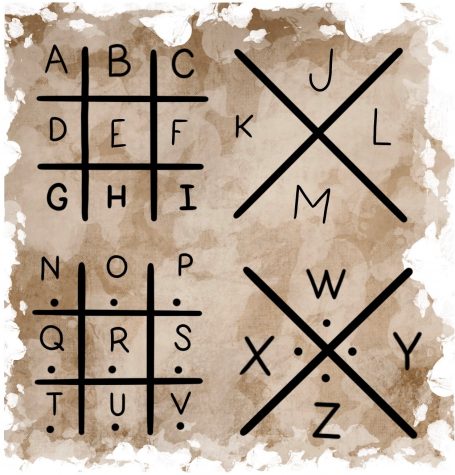Mathematics department hosts Kryptos decoding competition
April 25, 2020
This year’s 10th annual Kryptos competition recognizes four students, Michael Klapper, Tyler Bunnell, Kyle Brown and Dustin Hayes for their code making and breaking abilities.
Of the 116 participants, Michael Klapper achieved the master codebreaker recognition for solving all three solutions. Tyler Bunnell, Kyle Brown and Dustin Hayes achieved recognition for being proficient code breakers for solving two solutions.
The Mathematics department hosted the 10th annual Kryptos competition from April 16-20. The competition is designed for any undergraduate across the globe.
CWU Mathematics Professor Stewart Boersma and Western Oregon University Professor Cheryl Beaver designed the Kryptos competition to challenge undergraduates to test their abilities in breaking ciphers, encrypting messages and transforming unintelligible text to simple plain text.
Tyler Bunnell, a junior computer science major, participated in the Kryptos competition with two friends and placed in the top finishers.
Bunnell was inspired to do the competition because he is passionate about puzzle solving. Bunnell said over four days, his team spent over 30 hours trying to solve all three solutions.

Bunnell’s routine over the four days consisted of early mornings involving self study and research. In the afternoon, the team collaborated from 4-11 p.m. on the Discord app to exchange ideas.
Bunnell’s favorite part of the competition is finding parts of the answer and getting closer to the solution.
“The satisfaction when you find something, the full answer or another step closer to the answer, that was the greatest feeling,” Bunnell said.
Bunnell’s least favorite part of the competition was the discipline of sitting down and looking at the same solution multiple times. Bunnell said there were times when it felt like he was going crazy. Bunnell said it feels good to be placed competing against teams globally, and that the Kryptos competition puts students’ puzzle solving skills to the test.
Wayne Miles, a junior computer science major, participated in this year’s competition. Miles decided to join the competition after hearing about it from a professor on campus.
What inspired Miles to compete in this year’s competition was the opportunity to do something new. Miles said he did not know what to expect from competing but wanted to expose himself to something new, as a cybersecurity minor.
Miles’ favorite part of the competition was putting his skills to the test. Miles said when he couldn’t figure out the solutions, he spent more time researching and learning about different types of encryptions.
Miles looks forward to competing in next year’s competition. He recommends Kryptos to people who like to solve things in multiple ways. Miles plans on becoming a cybersecurity officer in the Army Reserves and a future content creator after college.
“I would like to have the ability to create my own cybersecurity business and something in that field,” Miles said.
Kryptos was founded by Boersma and Beaver 10 years ago. Boersma saw this as a prime opportunity to expand competitions in the Northwest after attending meetings involving cryptology. Beaver was the only volunteer to help create the Kryptos competition.
Boersma enjoys providing students the challenge because it is fun and available to students around the nation. Boersma said the competition is an opportunity for students to distract themselves from the outside world, and it’s not only a mathematics competition, but also involves problem solving.
“The nice thing about the Kryptos competition is that it is all online and lots of students sign up countrywide and outside the country,” Boersma said.
Boersma said the first couple of teams finished before midnight on the first day. The prize for top finishers included a Kryptos coffee mug and books on coding. There is more information on the competition at https://www.cwu.edu/math/kry



